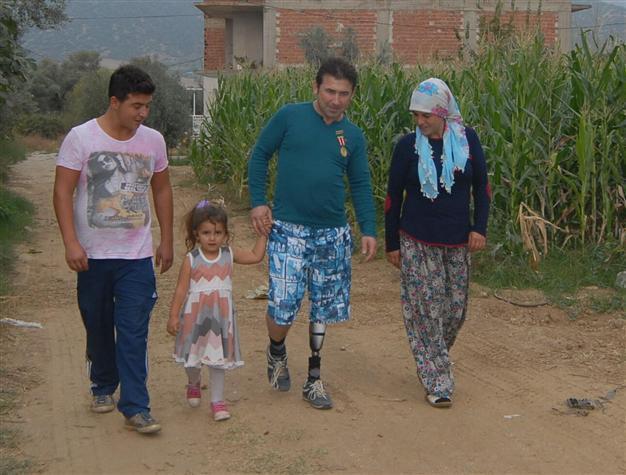Turkey’s social security body to pay veteran in part for prosthetic leg after loan crisis
ANKARA – Doğan News Agency

DHA Photo
Turkey’s social security body will make the payment for a prosthetic leg purchased by a veteran soldier, who had hit headlines after it was revealed that he was facing repossession of his property for failing to repay a loan he took out for the new prosthesis.However, veteran soldier Bülent Kocaoğlan said the Social Security Institution (SGK) would only pay 98,000 of 135,000 Turkish Liras, the total cost of the prosthetic leg.
Kocaoğlan lost his left leg during a terrorist attack in 1996 and decided to replace his prosthetic leg after 18 years, following a new omnibus bill approved by the government allowing veterans “to use permanent prostheses.”
He took out a 50,000-lira loan from a bank to pay a medical firm, which demanded an advance payment for the prosthetic leg in order to avoid the risk of the state delaying the payment.
Following reports that the bank had sent him notices as he failed to repay the loan, officials from the SGK visited his house to conduct the most recent examinations and delivered the necessary documents to the office after seven months.
But despite the SGK being spurred to action, Kocaoğlan said he still does not understand why it is not paying the total cost.
“I am not rich enough to pay 37,000 liras,” he said. “They want to make the payment according to the price determined by inspectors, taking advantage of the new regulation. How am I going to pay 37,000 liras?” he said.
Kocaoğlan added that he has no choice but to sell his wheel chair to pay the money. “Otherwise I will have to save all of my salary. I will collect 37,000 liras at the end of one and half years and pay the firm back,” he said.
The İzmir SGK office previously released a statement, saying that the delay in payments was due to the large number of applications, which increased the length of time in the process of examining every folder. Inspectors were investigating applications that exceeded the determined upper limit for the payment of medical devices.
















